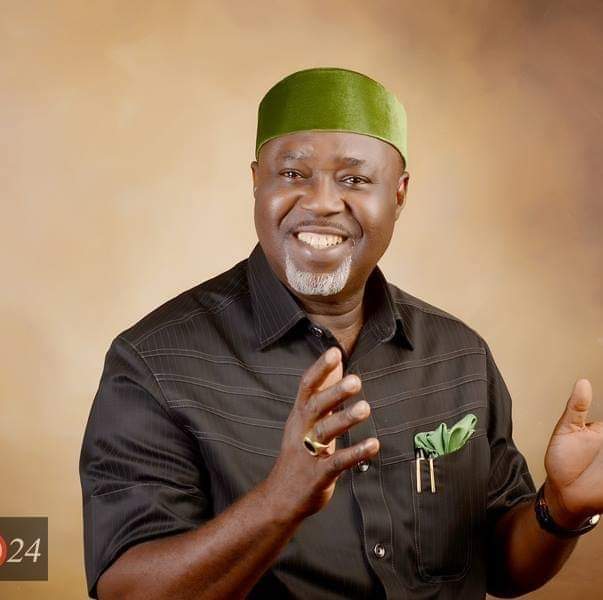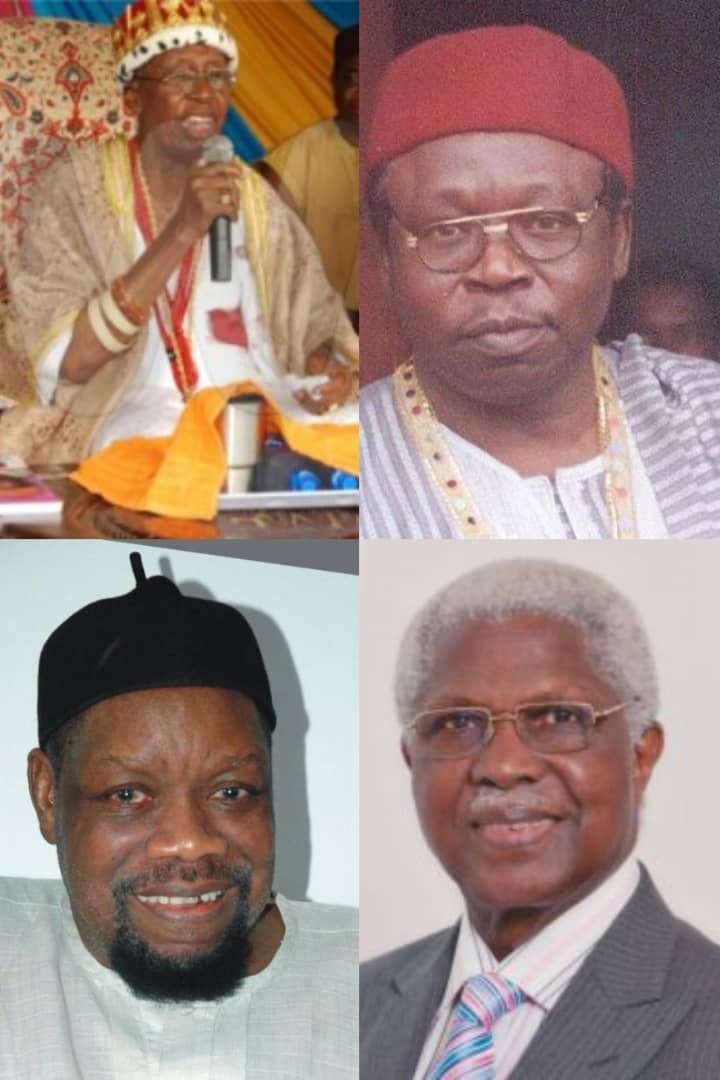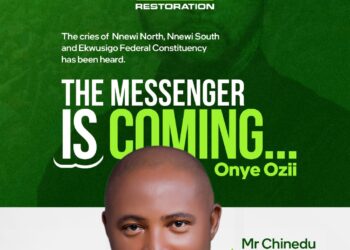“THE NEXT ANAMBRA”
REMARKS BY CHIEF DR. GEORGE N. MOGHALU, MANAGING DIRECTOR OF THE NATIONAL INLAND WATERWAYS AUTHORITY (NIWA), AT THE SECOND EDITION OF THE ANAMBRA MAN OF THE YEAR AWARD CEREMONY.
PROTOCOLS
I salute you all in the name of our Lord Jesus Christ by whose grace and mercy we are gathered here today in brotherhood to engage in essential conversations about the present and future of our beloved Anambra state. I do not take it for granted to be invited to speak to you today. So, I must begin my remarks by expressing my gratitude to the event organisers for the invitation to join you here today. I also appreciate all of you who have taken the time to be here.
I have been asked to speak to you today on the subject of “The Next Anambra”. For me, this is an opportunity to articulate the best vision of our State’s future and consider what we need to do to achieve that vision. However, to do that effectively, we must begin by conducting an honest appraisal of where we are now. Brothers and sisters, to be entirely frank with you, the best that can be said of Anambra state today is that we are not where we ought to be.
We have settled for a politics that prioritises personalities over institutions and a culture that elevates personal achievement over societal advancement. We have bought into the flawed idea that we can discard the rule of law and due process in government and still expect optimum outcomes. We have allowed our State and our people to become caught up in the tyranny of low expectations that encourages us to set small goals and celebrate basic achievements. Worst of all, we have succumbed to the fallacy that the problems that bedevil us are beyond our collective capacity.
This is where we are. Now, to the question of where we ought to be. You see, Anambra state is a promise unfulfilled. We are a people of boundless capacity, with a history of excellence in every area of human endeavour. Our biggest challenge has always been the opportunity challenge: the absence of the social infrastructure necessary for individuals to achieve their highest ambitions. Unfortunately for us, this opportunity challenge has always been most profound here at home. And this is why for generations, the average Anambra man has sought his fortune and progress away from home.
Therefore, the best vision of Anambra state’s future for me is that of a state where our children can dream big dreams and have the opportunity to achieve those dreams here at home and to the benefit of us all. And I believe that we can make this possible through the practice of principled politics. The kind of politics that emphasises caring for the sick and afflicted, housing the homeless and building ladders of opportunity that allow every citizen, regardless of the circumstance of birth, to achieve by the strength of their own endeavours the best aspirations of the human spirit.
To my mind, there are three critical pillars upon which we can build such a future. They are education, economic opportunity, and the rule of law. Education allows our people to dream beyond their current circumstances. It empowers them to participate productively in the administration and politics of their states. It frees them from the shackles of traditionalist thought to participate in the innovation and invention that are the hallmark of the modern economy. Education effectively solves multiple problems. But it requires us to invest in modernising education infrastructure. And to recruit, train and adequately remunerate our teachers and determine that the goal of our education system must be to produce graduates who have the knowledge and confidence to write their own destiny in an ever-changing world.
Neither our State nor our country will long survive unless we quickly answer the question of how to provide productive employment for the nearly 70% of our population who are young people in the prime of their lives. Government cannot create sufficient jobs to meet the current or future demand. Only the private sector can do that. The role of government is to create the conditions that encourage private investment and allow private enterprise to flourish. And the way to do that is to invest in public infrastructure, remove regulations that stifle industry, streamline taxation and ensure that what is collected is efficiently utilised and adequately accounted for.
Additionally, we must ensure that government business is conducted strictly according to due process and the rule of law. When government actions violate the rule of law, and government officials act contrary to due process, it undermines the moral foundations of the State and creates the circumstances for non-state actors to emerge and gain credibility with the populace. This is already a reality that we are contending with here in Anambra state, across the SouthEast and the nation. But it need not be so. We have to restore the moral authority of government, and we do it by, amongst other things, modelling the best practices that allow people to believe that government can be a force for good in their lives.
Finally, ladies and gentlemen, we need to rethink our collective approach to politics in Anambra state. I believe society works best for all of us when every citizen, regardless of their birth circumstances, is afforded the same opportunities to succeed as the most highly born. We cannot offer equal outcomes, nor can we promise uniform rewards. Still, we have a responsibility to level the playing field by building the infrastructure of opportunity so that every person who chooses to work hard and play by the rules gets a fair chance to succeed for themselves and then contribute to the success of others who are coming up.
However, we cannot do any of these things for as long as we practice a myopic politics focused on pursuing short-term gains, personal enrichment, and the service of ambition for its own sake. Whereas politics ought to be a means to achieving progress and a more just society, in Anambra state, it has become the exclusive preserve of merchant politicians trading the common good for private profit. Most troubling of all, a new generation of younger politicians are emerging who have known no other style of politics and believe that this desperate and depraved style of politics is the only way there is. As I stand before you today, let me tell you that politics and public service are calling to serve and do God’s work on this earth. A politics rooted in the corruption of due process and the violation of the rights of people can never yield any good outcome. We must all resolve to discard that sort of politics and the people who traffic in it because they cannot deliver anything excellent and worthy for our people and our beloved State.
Umu nnem Ndi Anambra, our future is not set in stone. It is the product of our decisions today and the priorities we pursue together as one people. We have it in our power to build for ourselves and our children a state that is at peace, where people can dream big dreams and achieve grand ambitions by the effort of their hands and the grace of the almighty God.
Our State and country are only ultimately doomed when all of us stop trying to make it work. As long as there are men and women of good conscience and evident ability thinking about solutions to our problems and working to implement those solutions in the areas where they can, there is hope for Anambra state, and there is hope for Nigeria. So, I leave you today with that message of hope that our tomorrow can be better than today and our future more prosperous than all our yesteryears. God bless Anambra State, and God bless our Federal Republic of Nigeria.






